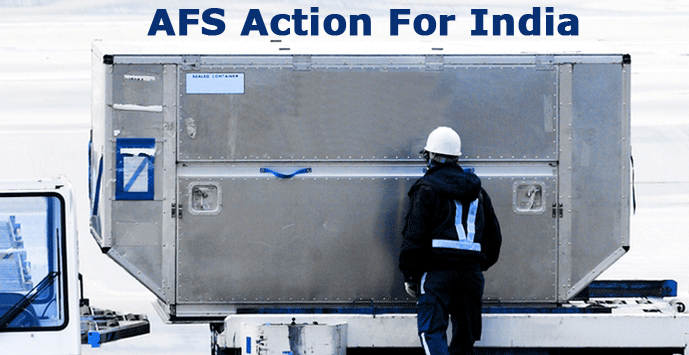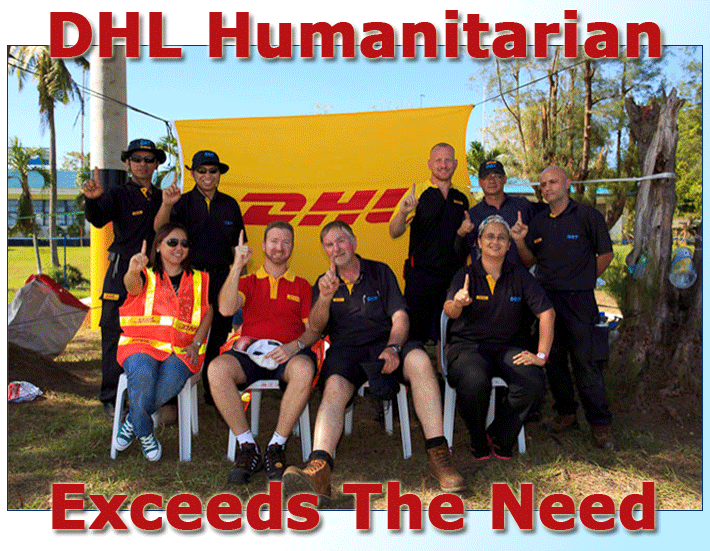 |
Chris Weeks
(sitting third from left in above photo with members of the DRT team)
is, demonstrably, one of air freight’s good guys. The Brussels-based
Brit is an airport logistics specialist with more than 25 years of experience.
And it is experience he puts to admirable use.
In his current role as Director of
Humanitarian Affairs for Deutsche Post DHL Group (DPDHLGroup), Weeks is
on constant standby, ready to lead DHL volunteer teams into disaster zones
to help smooth emergency relief logistics operations at airports worldwide
whenever the need arises.
Unfortunately, the need arises tragically
often – Weeks was involved in DHL deployments following the Asian
tsunami, Hurricane Katrina in the United States, Cyclone Nargis in Myanmar,
the 2011 floods in Pakistan, and earthquakes in Kashmir, Peru, Indonesia,
Haiti, Chile and the Philippines. He also led a DHL deployment in Kathmandu,
Nepal, following the April
2015 earthquake – a disaster FlyingTypers covered extensively.
“I get immense satisfaction
that the company is doing something useful in the humanitarian world and
that it seems to be very much appreciated,” he told FlyingTypers.
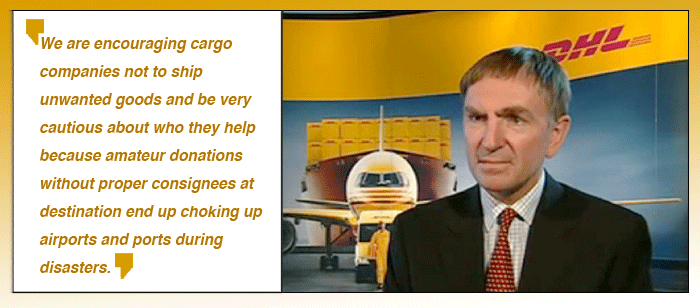 |
“We see ourselves as a unit
that can respond to a disaster immediately and go straight in there and
decongest an airport – airports are always absolutely vital to the
humanitarian supply chain in the first weeks after a tragedy.”
Weeks’ remit is to execute DPDHL’s
strategic partnership with the United Nations Office for the Coordination
of Humanitarian Affairs in the field of Disaster Management. As part of
this pro bono agreement, the group has recruited, trained and equipped
over 400 company employees to form three volunteer DHL Disaster Response
Teams (DRT) located in Panama, Dubai and Singapore. They support UN relief
operations and the international community by providing airport logistics
operational experience and expertise following a major sudden-onset natural
disaster.
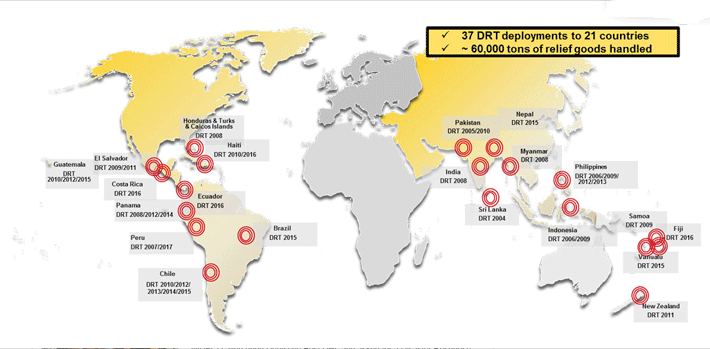 |
Weeks focuses on developing the DPDHL
Group-UN partnership as a model for other companies seeking to provide
humanitarian aid. Certainly, DPDHL’s involvement has been constructive
both for those receiving aid and for the company volunteers who sign up
to join Weeks’ DRTs. He believes other companies could also benefit
by taking a similar approach to Corporate Social Responsibility.
“Getting staff involved is highly
motivating for the right people,” he said. “The shareholders
like it, the staff like it and we play a very useful role on the ground.
The key is that it all needs to be structured, you need a focus. So we
stick to the airports. We don’t get involved in distribution, that’s
for the NGOs.”
Recently Weeks went back to Nepal’s
Tribhuvan International Airport (KTM) helping the various airport agencies
draw up a plan should another disaster strike. He said the preparedness
failings of most airports during a disaster were generally the same and
could be countered with the right planning.
“Most airports are set up with
different agencies reporting to different government ministries and the
people involved in running them often don’t know each other or don’t
meet together,” he said. “If it was a private company you’d
have annual or quarterly meetings or other reasons for everyone to get
together. At most airports, you don’t. Customs reports to one ministry,
security another, health officials to another etc. There is rarely a body
or committee or structure set up so all agencies meet and agree ways to
improve things or to develop a coordinated approach if disaster hits.
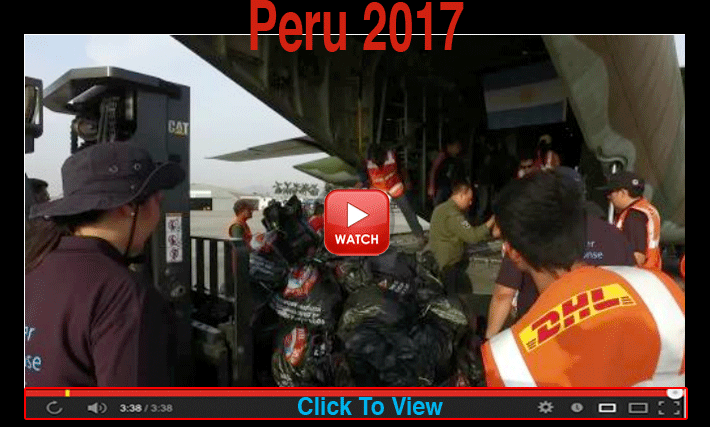 |
“Then when a disaster happens
they realize they don’t have the mechanisms to cope with three times
the traffic for three weeks. They don’t train for it or practice
dealing with it.
“They might have busy periods
but don’t train for a sustained surge in traffic like you see after
a disaster. That’s the common issue we address by getting the key
30 people at an airport together with our Get Airports Ready for Disaster
(GARD) workshops programs. We get them to sit together as a group and
embolden them to work out a system to manage a disaster.”
Another common problem, one all too
apparent to your correspondent when he visited KTM in 2015, is the problem
of ‘unwanted’ goods being sent to disaster zones by private
groups and governments.
Although well-intentioned, the aid
often makes the logistics on the ground worse more difficult. Indeed,
Weeks urges his cargo peers both in the skies and on the seas not to offer
free shipping for emergencies.
“We are encouraging cargo companies
not to ship unwanted goods and be very cautious about who they help because
amateur donations without proper consignees at destination end up choking
up airports and ports during disasters,” he said. “Unsolicited
donations also choke up the value chain if shipped for free as people
just send anything, because it’s free. We see a lot of out-of-date
medicine, or unsuitable clothing and equipment sent like this.
“This might sound mean, but
if you get free shipping you tend to send low value goods that are often
not needed.”
“So we are trying to encourage
cargo companies not to offer free shipping for groups, governments or
charities that haven’t got the right systems in place.
“The UN is trying to encourage
money donations to good causes via good operators who can transfer funds
rather than old clothes which I think is the right approach.”
In the coming months, Weeks will be
improving the disaster preparedness of airports in the Middle East, the
Indian Ocean and Central America. Should the worst happen, DHL’s
DRT teams will be among the first responders.
SkyKing |
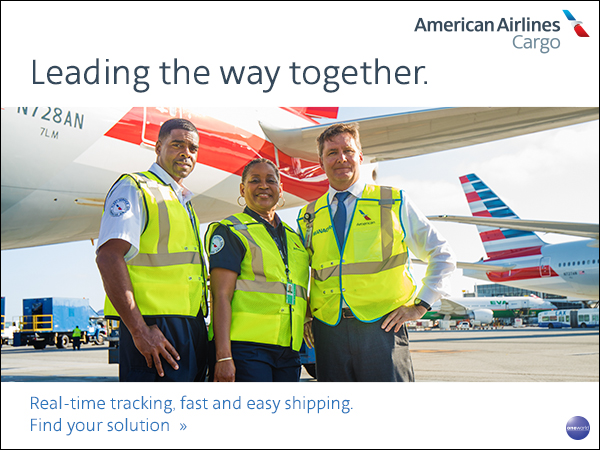






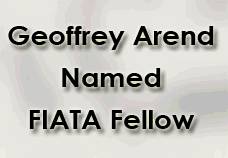






 That thought was echoed by Mr. Fried, who also called
for more consistent interpretation of security rules by TSA.
That thought was echoed by Mr. Fried, who also called
for more consistent interpretation of security rules by TSA.

